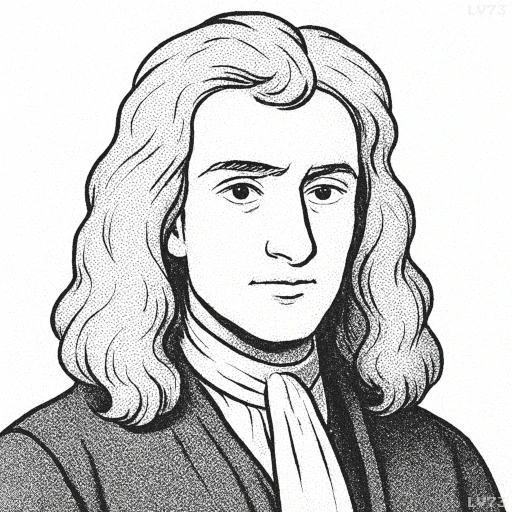“Truth is ever to be found in simplicity, and not in the multiplicity and confusion of things.”

- January 4, 1643 – March 31, 1727
- Born in England (UK)
- Natural philosopher, mathematician, physicist, astronomer, theologian
table of contents
Quote
“Truth is ever to be found in simplicity, and not in the multiplicity and confusion of things.”
Explanation
In this quote, Isaac Newton emphasizes the value of simplicity in understanding the truth. Newton believed that the most profound truths about nature and the universe could be found in their simplest forms, rather than in complex or convoluted explanations. This perspective reflects his scientific philosophy, where he sought to describe the laws of nature in clear, elegant terms—often using simple mathematical formulas that captured the essence of complex phenomena. For Newton, the simplicity of an explanation was a sign that it was closer to the fundamental truth of the universe, which was often hidden beneath the surface complexity of the world.
Newton’s commitment to simplicity is evident in his landmark work, the Principia Mathematica, where he distilled the complex motions of celestial bodies into a few key principles, such as the laws of motion and universal gravitation. His ability to reduce the intricate movements of planets and objects into a mathematical framework exemplifies his belief that the simplest solutions are often the most elegant and accurate. This approach contrasted with the more speculative and sometimes overly complex ideas that dominated science prior to the Scientific Revolution, and helped establish a new way of thinking about the physical world based on empirical evidence and mathematical simplicity.
In modern science, Newton’s pursuit of simplicity continues to influence how we approach complex problems, especially in fields like physics, where theories such as quantum mechanics and general relativity strive to explain the universe in terms of underlying simplicity. The principle that truth often lies in simple explanations is still a guiding principle in scientific inquiry, where theories that are more elegant and unified are often preferred over those that require overly complex assumptions. Newton’s belief that truth can be found in simplicity resonates in modern efforts to understand everything from cosmology to biochemistry, where the goal is often to uncover the simplest set of laws that govern the complex systems of nature.
Would you like to share your impressions or related stories about this quote in the comments section?

